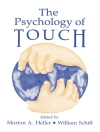‘[A] very useful resource, not only for psychologists and education professionals, but universally, for all those experts interested in multicultural assessment.’
–Heikki Lyytinen, Ph D
Professor of Developmental Neuropsychology
University of Jyv‰skyl‰, Finland
This volume provides a thorough and provocative examination of how different cultures measure intelligence and skill, why they use the tools they use, and how their assessment methods are changing in the globalizing world.
The contributors discuss the extent to which methods of assessment are limited and culture-bound. These methods must be revised and adapted to become relevant to foreign cultures. To this end, this book uses theoretical models and empirical studies to explore the use and validity of standardized tests, language and literacy tests, job interviews, and other methods of assessment across various cultures from both developed and developing countries.
Key topics include:
- National and international standards and guidelines for test development and use
- Limitations of Western assessment tools for populations in the developing world
- The challenges of measuring abilities and competencies in Hispanics/Latinos
- Developing and adapting language and literacy assessments in Arabic-speaking countries
- Assessing competencies in reading and mathematics in Zambian children
Jadual kandungan
‘Preface by Elena L. Grigorenko
1. How Universal are Test Development and Use?
2. Equitable Assessment Practices in Diverse Contexts
3. Respecting Local, Cultural Context for Assessment Practice in an Era of Globalization
4. Conceptualizing Developmental Assessment within Africa’s Cultural Settings
5. Assessing the Environment of Children’s Development: The Development Niche in Africa
6. Assessing Competencies in Reading and Mathematics in Zambian Children
7. Assessing Mother Tongue in the Era of Globalization: Promise and Challenge
8. The Logic of Confidence and the Social Economy of Assessment Reform in Singapore: A New Institutionalist Perspective
9. Instructional and Assessment Practices in Singapore
10. Considerations for Developing and Adapting Language and Literacy Assessments in Arabic-Speaking Countries
11. The Behavioral Characteristics of Kindergarten Gifted Children in Saudi Arabia: Construction and Validation of a Scale
12. Developing Culture-Specific Assessments
13. The Use of Foreign Psychodiagnostic Inventories in Differing Methodological Contexts
14. Adapting Existing Abilities and Competencies Assessment Devices to Different Cultures
15. The Challenge of Measuring Abilities and Competencies in Hispanics/Latinos
16. Considering Language, Culture, and Cognitive Abilities: The International Translation and Adaptation of the Aurora Assessment Battery
17. Conclusion: Assessment in an Era of Globalization: Conclusions
‘
Mengenai Pengarang
Dr. Elena L. Grigorenko is Associate Professor of Child Studies and Psychology at Yale and Associate Professor of Psychology at Moscow State University. Dr. Grigorenko has published more than 200 peer-reviewed articles, book chapters, and books, and has received awards for her work from five different divisions of the American Psychological Association.












